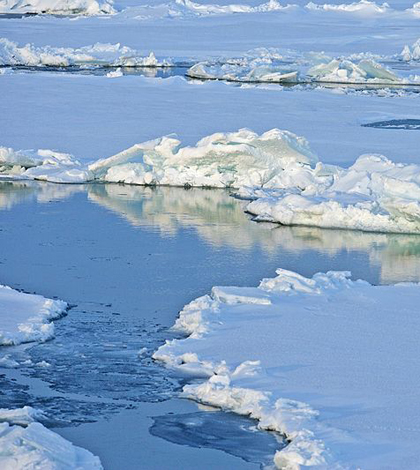Researchers say a melting Arctic Ocean acts as a carbon sink

As global temperatures increase and ice in the arctic continues to melt, a team of researchers says the potential for the Arctic Ocean to act as a carbon sink is increasing, according to a release from MIT. The team modeled changes in sea ice to draw the conclusion.
Modeling from 1996 to 2007 reveals that the amount of carbon taken up by the Arctic increased by one megaton each year. When ice recedes and sunlight penetrates surface water, aquatic lifeforms are spurred to grow. When these forms – usually phytoplankton – die, they fall to the bottom, where their organic carbon is stored, creating a carbon sink.
While there is more productivity in the Arctic, the researchers say that isn’t the whole story. Some of the areas under study, including the Barents Sea, were shown to emit carbon dioxide into the atmosphere.
Image: Arctic ice flow (Credit: NOAA Climate Program Office)




0 comments